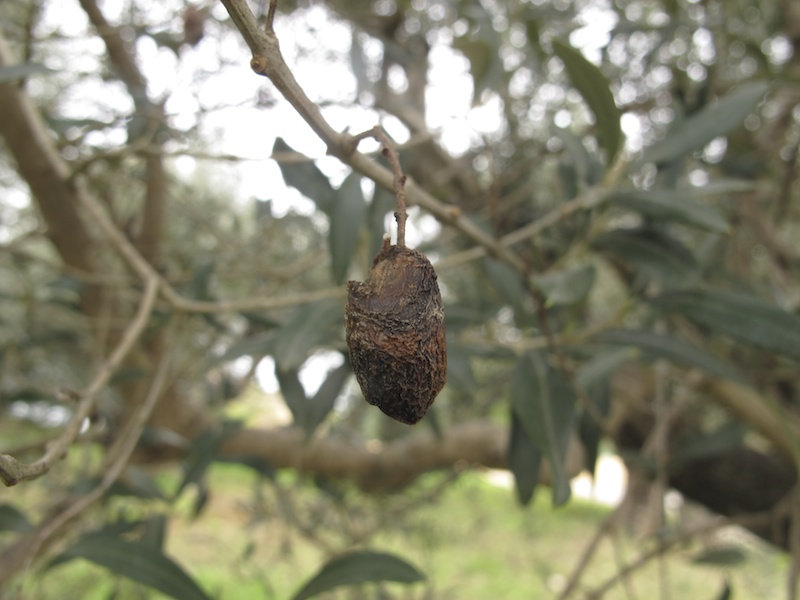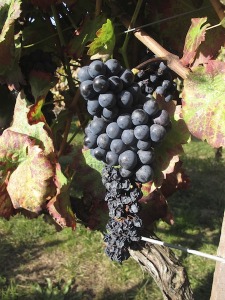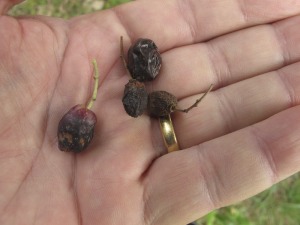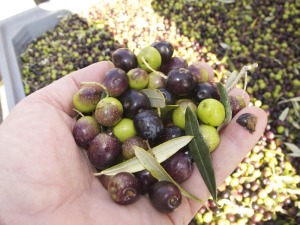 One of the things that defines Umbria and Umbrians is their connection with and to the earth, an impulse that traces its origin back to their beloved St. Francis. That love of nature and the natural world is not limited to just those who make a living off the land. It seems everyone – doctor, lawyer, barista – has a special room in their house, a cantina or magazzino where they are aging cheese, making and storing wine, hording olive oil made from the family’s trees.
One of the things that defines Umbria and Umbrians is their connection with and to the earth, an impulse that traces its origin back to their beloved St. Francis. That love of nature and the natural world is not limited to just those who make a living off the land. It seems everyone – doctor, lawyer, barista – has a special room in their house, a cantina or magazzino where they are aging cheese, making and storing wine, hording olive oil made from the family’s trees.
When nature shares its bounty with us it is truly a glorious thing. Tomato plants straining under the weight of heavy fruits literally bursting at the seams with life and with flavor. Freshly dug truffles wafting their exotic and intoxicating perfumes, setting the mind and senses on fire. Succulent meats glimmering and glistening in the fire.

But nature is not always so friendly. She can be fickle. And so when our group visited the Trampolini olive mill for our scheduled appointment to observe the olive harvest, to marvel as fresh, ripe olives were washed and sorted and turned into paste yielding their fluorescent green oil it was a shock to find the mill silent. The usual commotion of tractors laden with enormous baskets of olives did not fill the air. The rushing of bodies to and fro to start this machine, to monitor another, to remove stainless cylinders full of oil was missing. Instead, we were greeted, not grimly but cheerily by two generations of the Trampolini family, owners of the mill since the 1700s (the mill traces its roots back to the 1200s) who told us the shocking news. This year’s entire crop was a loss.
Infestation of flies had affected all two thousand trees, rendering the shiny green and black fruits unsuitable for making not just fine oil, but oil suitable for consumable at all. This year the mill would be mostly quiet, started up only occasionally to make oil from those lucky enough to have avoided the plague, which has affected olives across the peninsula. Get ready for higher olive oil prices, America, because there is going to be little oil from Italy available this year.


But nature has focused her wrath not just on olives. For the second year in a row Umbrian wine producers have faced extremely difficult and untimely weather, rendering another crop of extremely low quantity, requiring heroic efforts to harvest sufficient grapes of high quality.
And what of the Umbrians? Those who make their living producing award winning olive oils? Those whose days are spent in the fields and in the cantina making wines of distinction? How do you move forward when your entire year is wiped out? The Umbrians we know move forward and don’t dwell on the past. What have we learned this year, Alessandro Trampolini asked himself? We will be better prepared next year he promises. We may not have a Montefalco Rosso this year, but we still have some great bottles from the previous year in our cellar, opines our host at the Paolo Bea winery. This is part of the cycle of nature and those who benefit from the good years don’t run around like their hair is on fire in the bad years. They trust in nature and look hopefully to the future. Perhaps we all could learn from their example.
Ci vediamo!
Bill and Suzy



About The Author
Related Posts
And so we come to the end of our 2011 Food and Wine Tour, having…
Cipolloni Olive Oil Mill